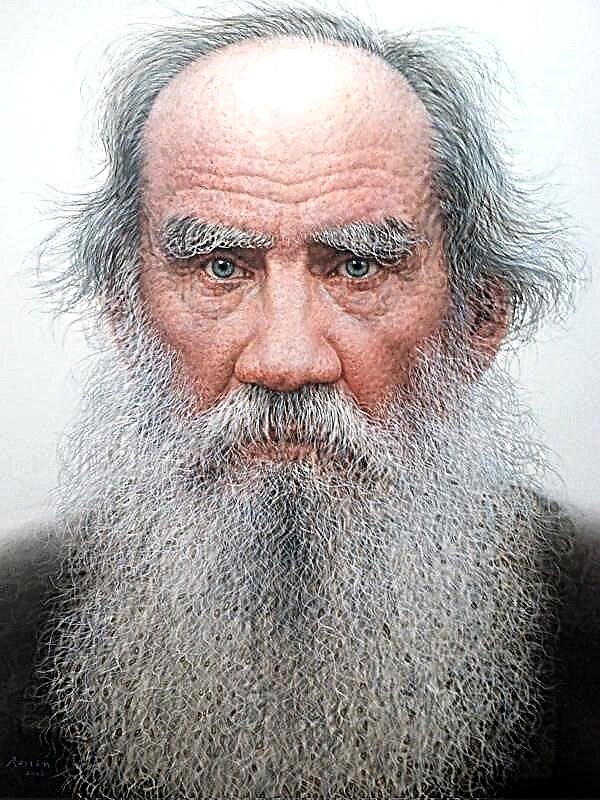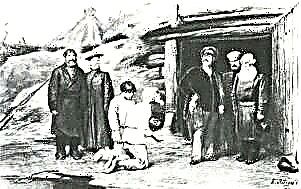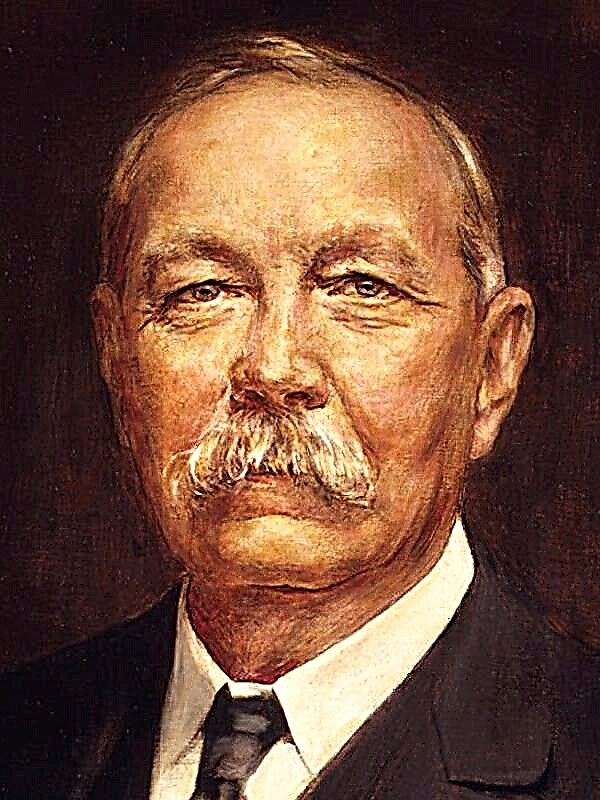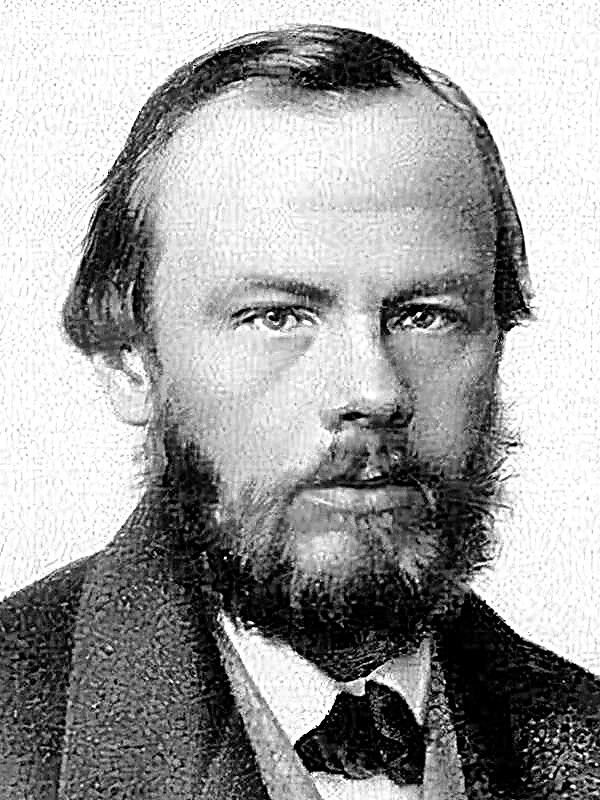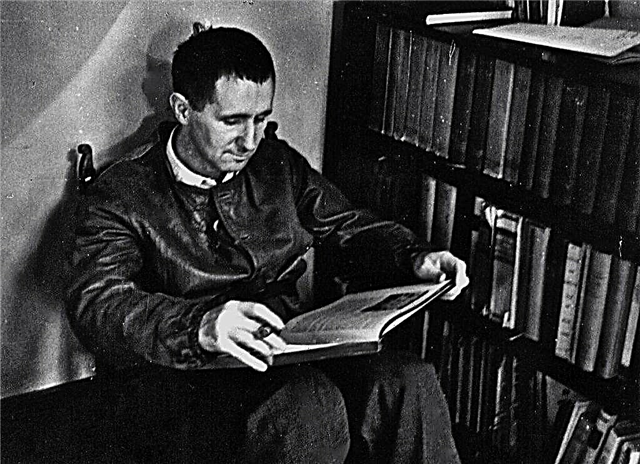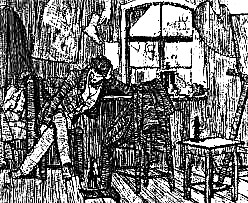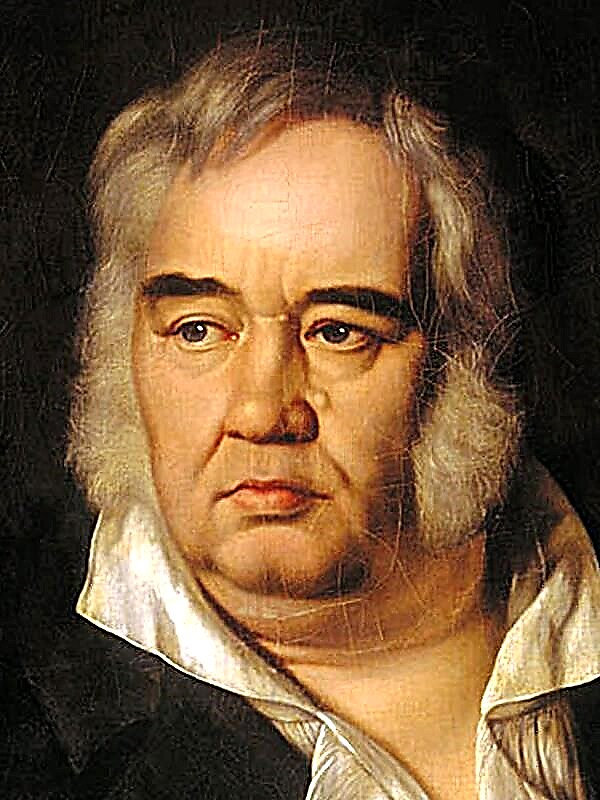Hippolytus, the son of the Athenian king Theseus, sets off in search of his father, who has been wandering somewhere for six months now. Hippolytus is the son of the Amazon. Theseus's new wife, Fedra, did not like him, as everyone believes, and he wants to leave Athens. Fedra is sick with an incomprehensible disease and "longs to die." She talks about her sufferings, which the gods sent to her, about the fact that around her a conspiracy and her "decided to lime." The fate and anger of the gods aroused in her a kind of sinful feeling that terrifies herself and of which she is afraid to speak openly. She is doing her best to overcome the dark passion, but in vain. Fedra thinks about death and waits for it, not wanting to reveal its secret to anyone.
The nurse of Enon fears that the queen's mind is troubled, for Fedra herself does not know what she is saying. Enona reproaches her with the fact that Fedra wants to insult the gods by interrupting her “life of thread,” and urges the tsarina to think about the future of her own children, that they will quickly be taken away by the “arrogant Hippolytus” born of the Amazon. In response, Fedra declares that her “sinful life is already too long, but her sin is not in actions, her heart is to blame for everything - it is the cause of torment. However, what is her sin, Fedra refuses to say and wants to take her secret to the grave. But he doesn’t stand it and admits to Enone that he loves Hippolyta. She is terrified. As soon as Fedra became Theseus’s wife, she saw Hippolytus, as “either a flame or a chill” tormented her body. This is the "all-powerful fire of Aphrodite," the goddess of love. Fedra tried to appease the goddess - “she built a temple, decorated it”, made sacrifices, but in vain, neither incense nor blood helped. Then Fedra began to avoid Hippolytus and play the role of the evil stepmother, forcing her son to leave his father's house. But all in vain.
The maid Panopa reports that news has been received that the husband of Fedra Theseus has died. Therefore, Athens is worried - who should be the king: the son of Fedra or the son of Theseus Hippolytus, born of a captive Amazon? Enona reminds Fedra that she now bears the burden of power and she has no right to die, because then her son will die.
Aricia, a princess from the Athenian royal family of Pallant, whom Theseus had deprived of power, learns of his death. She is concerned about her fate. Theseus held her captive in a palace in the city of Tresene. Hippolytus was elected ruler of Tresen and Yemen; the confidante of Aricia believes that he will free the princess, since Hippolytus is not indifferent to her. Arikia was captivated in Hippolytus by spiritual nobility. Keeping his illustrious father "in high resemblance, he did not inherit his father's low traits." Theseus was sadly famous for seducing many women.
Hippolytus comes to Aricia and announces to her that he repeals his father’s decree about her captivity and gives her freedom. Athens needs a king and the people put forward three candidates: Hippolytus, Aricia and the son of Fedra. However, Hippolytus, according to ancient law, if he is not born Hellenic, cannot own the Athenian throne. Aricia, on the other hand, belongs to the ancient Athenian family and has all the rights to power. And the son of Fedra will be the king of Crete - so Hippolytus decides, remaining the ruler of Tresen. He decides to go to Athens to convince the people of Arikia’s right to the throne. Aricia cannot believe that the son of her enemy gives her the throne. Hippolytus replies that he had never known what love is, but when he saw it, he “humbled himself and put on the shackles of love.” He thinks about the princess all the time.
Fyodra, meeting with Hippolytus, says that he is afraid of him: now that Theseus is gone, he can bring down his anger at her and her son, taking revenge for being expelled from Athens. Hippolytus is indignant - he could not have acted so low. In addition, the rumor of Theseus' death may be false. Fedra, unable to control her feelings, says that if Hippolytus was older when Theseus arrived in Crete, he could also have accomplished the same feats - to kill the Minotaur and become a hero, and she, like Ariadne, would give him thread, so as not to get lost in the Labyrinth, and would associate her fate with him. Hippolytus is perplexed, it seems to him that Fedra is dreaming in reality, mistaking him for Theseus. Fedra retorts his words and says that he loves not the old Theseus, but the young, like Hippolytus, loves him, Hippolytus, but does not see his own guilt because he does not have power over himself. She is a victim of divine wrath, it is the gods who sent her the love that torments her. Fedra asks Hippolytus to punish her for her criminal passion and get her sword from its scabbard. Hippolytus runs in horror, no one should know about a terrible secret, not even his mentor Theramen.
From Athens there is a messenger to give Fedra the reins of government. But the queen does not want power, she does not need honors. She cannot rule the country when her own mind is not subject to her, when she is not in control of her feelings. She had already revealed her secret to Hippolytus, and hope for a reciprocal feeling awoke in her. Hippolytus is a Scythian by mother, says Enona, the savagery in his blood - "he rejected the female sex, does not want to know him." However, Fedra wants to wake love in “wild as a forest” Hippolyta, no one has yet spoken to him about tenderness. Fedra asks Enon to tell Hippolytus that she gives him all the power and is ready to give her love.
Enona returns with the news that Theseus is alive and will soon be in the palace. Horror seizes Fedra, for she is afraid that Hippolytus will betray her secret and expose her deception to her father, and will say that her stepmother dishonors the royal throne. She thinks of death as salvation, but is afraid for the fate of her children. Enona offers to protect Fedra from dishonor and slander Hippolytus in front of his father, saying that he desired Fedra. She undertakes to arrange everything herself in order to save the honor of the lady "contrary to her conscience," for "so that the honor would be ... without a speck for everyone, and sacrifice virtue is not a sin."
Fedra meets Theseus and tells him that he is offended, that she is not worth his love and tenderness. He bewilderedly asks Hippolytus, but the son replies that his wife can reveal the secret to him. And he himself wants to leave in order to accomplish the same feats as his father. Theseus is surprised and angry - returning to his home, he finds his relatives in confusion and anxiety. He feels that something terrible is being hidden from him.
Enona slandered Hippolytus, and Theseus believed, remembering how pale, embarrassed, and evading his son was in conversation with him. He chases away Hippolytus and asks the god of the sea Poseidon, who promised him to fulfill his first will, to punish his son, Hippolytus is so amazed that Fedra blames him for criminal passion that he does not find words to justify - his tongue "has become ossified." Although he admits that he loves Aricia, his father does not believe him.
Fedra is trying to persuade Theseus not to harm his son. When he informs her that Hippolytus is supposedly in love with Aricia, then Fedra is shocked and offended by the fact that she had a rival. She did not expect anyone else to be able to arouse love in Hippolytus. The queen sees the only way out for herself - to die. She curses Enon for slandering Hippolytus.
Meanwhile, Hippolytus and Aricia decide to flee the country together.
Theseus is trying to assure Aricia that Hippolytus is a liar and she in vain listened to him. Arikia answers him that the king demolished the heads of many monsters, but "fate saved one monster from the formidable Theseus" is a direct allusion to Fedra and her passion for Hippolytus. Theseus does not understand the hint, but begins to doubt whether he knew everything. He wants to interrogate Enona again, but finds out that the queen drove her away and she threw herself into the sea. Fedra herself is rushing about in madness. Theseus orders to call his son and prays to Poseidon, so that he does not fulfill his desire.
However, it is too late - Theramen brings the terrible news that Hippolytus died. He was riding a chariot along the coast, when suddenly an unprecedented monster appeared from the sea, “an animal with the face of a bull, forehead and horned, and with a body covered with yellowish scales.” Everyone rushed to run, and Hippolytus threw a spear at the monster and pierced the scales. The dragon fell under the feet of the horses, and they suffered from fear. Hippolytus could not hold them, they raced off the road, on the rocks. Suddenly, the axis of the chariot broke, the prince became entangled in reins, and the horses dragged him along the ground, dotted with stones. His body turned into a continuous wound, and he died in the arms of Teraman. Before his death, Hippolytus said that his father in vain brought charges against him.
Theseus is terrified; he blames Fedra for the death of his son. She admits that Hippolytus was innocent, that she was "by the will of higher powers ... ignited by incestuous irresistible passion." Enona, saving her honor, slandered Hippolytus Enona is now gone, and Fedra, having removed from innocent suspicion, ends her earthly torment by taking poison.

